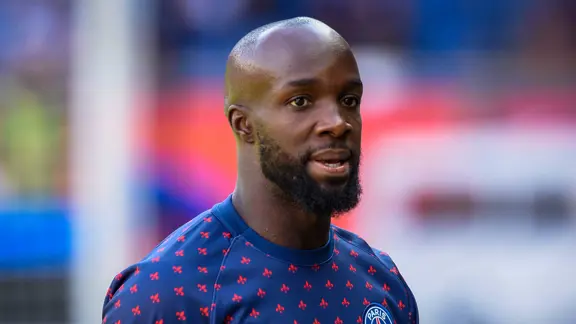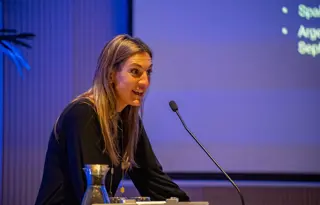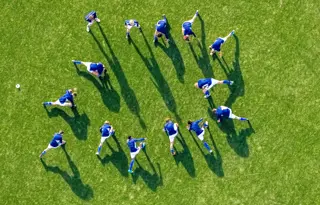News
What the Lassana Diarra ruling means – and what happens next

Lassana Diarra changed the rules on contract termination. The European Court of Justice’s landmark judgement presents players with more clarity and protection if they are thinking about terminating their contracts.
This followed the European Court of Justice (ECJ) ruling that several FIFA rules unfairly restricted players' rights compared to clubs and made it hard for players to move freely and continue their careers.
FIFPRO Legal Director Alexandra Gomez Bruinewoud breaks down what the ruling means for players, what consequences it will have for the upcoming transfer window, and why players need to be at the table to shape what happens next.
FIFPRO: Why is the European Court of Justice’s ruling on the Diarra case good for players?
Alexandra Gomez Bruinewoud: It is good because it puts in evidence how unbalanced the system used to be and re-establishes a reasonable system to calculate compensations. It is a good ruling for its conclusions, but also for the length and depth that the judges went into to explain why and how the system was against EU law, and I am not afraid to say that the same FIFA rules are probably also against most of the national labour laws, as it basically impeded a worker from working where they chose to – or even working at all.

Why did the previous method infringe on players’ rights, and what does the current system mean now?
Every worker should have the right to end a contractual relationship. Knowing how much you will have to pay as compensation is part of that right because the right is to take an informed decision based on certainty and predictability. Also, the fact that you leave your job should not prevent you from being hired in another job, which is what was happening in football.
The player may have different reasons for terminating a contract “without just cause”. This term, "just cause" is misleading, as the cause may be “just”, only that it is not considered legally sufficient in the regulations or jurisprudence. To give an example, I once spoke with a player whose mother had cancer and there was sadly nothing else doctors could do to help her, so they informed the player that his mother had more or less three months to live. The player was playing abroad, and he decided to inform the club that he would leave, to look after his mother for her remaining time. The player was in contract, and this was not a "just cause" to terminate the contract, so the player had to pay compensation to the club.
This situation would, unfortunately, still be the same after the Diarra ruling, but at least, after Diarra, the compensation to be paid by the player would have been much lower, as no transfer fee would have been included in the calculation. Also, if the national law had applied in that instance, the player, in this particular country, would have had to pay zero compensation.

What consequence does the ruling have for the upcoming transfer window?
The exact and immediate consequences are uncertain. What is clear is that there is a shift, and players should be aware of that. That is why we encourage footballers to reach out to their player union or FIFPRO, as we will be able to answer all questions considering the specific circumstances of that particular player, the country in which they are playing, and so on. This will help players make an informed and balanced decision.
It does not seem logical that the market is still paying a lot of money for a transfer fee, if the player will be able to terminate a contract and pay a more reasonable compensation. But these things take time, just like the Jean-Marc Bosman ruling did, so it might be that this transfer window is not yet that much impacted.
What could be a positive consequence for the market, especially for clubs, is that more players might be willing to prolong their contracts if they have more knowledge around the compensation.
What does FIFPRO want to see happen now?
We want to see an end to the double standard that currently applies; when a club terminates a contract without just cause, they know the financial consequences in advance – but players aren’t afforded that same treatment. We would like FIFA to acknowledge the depth, clarity and impact of the decision of the ECJ and act accordingly.
What would it entail to act accordingly? That a new transfer system must be the result of genuine negotiations in the framework of collective bargaining between the representatives of employees and employers.

Why is it important that there is proper negotiation with the stakeholders to shape the regulations in future?
This is just the right thing to do. Why would the players not be involved in the regulations that apply to them? It is not up to FIFA to unilaterally determine the labour conditions applicable to players. But also, the ECJ has put it very clearly in paragraph 99 of the decision.
European Court of Justice’s paragraph 99 on the decision:
In that regard, in the first place, as regards the protection of workers, it should be observed, first, that the protection of workers is not among the objectives of FIFA, as defined in its Statutes and, second, nor was that private law association entrusted by the public authorities with any particular mission in that area. That being so, there is no need to rule on whether, having regard to those circumstances, such an association is or is not entitled to rely on the pursuit of such an objective, since it is sufficient, in the present case, to state, in any event, that it is not apparent how the adoption or the implementation of the RSTP rules at issue in the main proceedings, as characterised in paragraph 74 of the present judgment, might contribute to the protection of professional footballers.
In addition, we believe that the ECJ ruling in the Diarra case should not be read in isolation. There is a clear trend and message coming from the ECJ that had to analyse and rule over a few sports-related cases. Sports governing bodies must govern with more transparency, objectivity and without discrimination. Hence, the way forward is collective negotiation.
What should players do if they are in doubt regarding their current situation?
They should contact their local union or FIFPRO. We will be happy to look into the specific situation of that player and assist.
